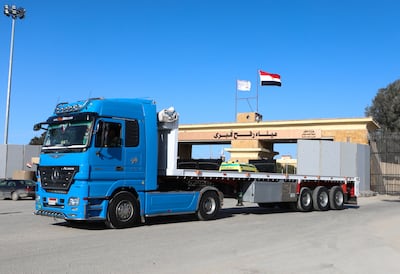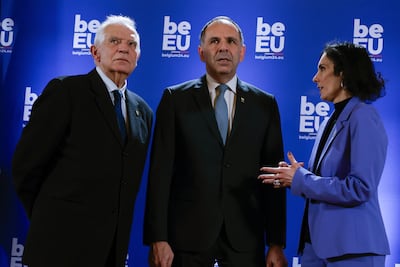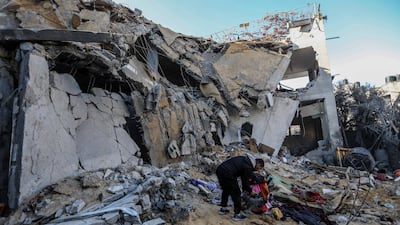Live updates: Follow the latest news on Israel-Gaza
Senior European diplomats pleaded with Israel on Saturday not to escalate fighting at the southern tip of Gaza, the last refuge for about a million displaced Palestinians.
Fears are growing after reports of Israeli shelling on the outskirts of Rafah, the city on the Egyptian border that provides one of the few ways in for humanitarian aid. Health officials in Hamas-run Gaza said an Israeli air strike killed 14 people in Rafah.
The UN has described the city as a “pressure cooker of despair” as people take shelter in tents or makeshift homes after fleeing the combat further north.
Holding talks on the Middle East and Africa in Brussels on Saturday, EU foreign ministers urged Israel not to aggravate the situation for civilians whom it had ordered to leave the north of Gaza.
“There are one million people in the south that have been displaced progressively against the Egyptian border,” said the EU foreign affairs minister Josep Borrell.
“They claimed that they were safe zones, but in fact what we see is that the bombing affecting the civilian population continues and is creating a very dire situation.”
German Foreign Office minister Anna Luehrmann said it was Israel's responsibility to address what she called the worrying situation facing civilians in Gaza, who rely on aid coming through the Rafah crossing.
“It is urgently necessary that there is better access for humanitarian aid. Therefore, we need humanitarian pauses, and therefore it is also irresponsible to speculate about a possible attack on Rafah,” Ms Luehrmann said.
“Rafah is a city where 100,000 people live, where humanitarian access to Gaza is organised as well, and that’s why we warn very emphatically against that.”

Israel's Defence Minister Yoav Gallant said on Thursday that troops would “reach Rafah and eliminate terror elements that threaten us”, after heavy fighting in nearby Khan Younis.
Egypt has refused to accept any mass migration of Palestinians further south across the border, saying this would amount to an expulsion by Israeli forces. The Israeli leadership is under orders from the International Court of Justice to take all measures in its power to prevent a genocide.
Israel rejects the accusation of genocidal intent from South Africa at The Hague, instead blaming Hamas's urban warfare tactics for the high civilian toll of the conflict.
Humanitarian relief has been thrown into further doubt by funding cuts for UN agency UNRWA, which faces allegations that some of its staff were involved in Hamas's October 7 attack on Israel.
“We need to see that Israel will be helping to open further border crossings, and de-escalating rather than escalating,” Finland's Foreign Minister Elina Valtonen said as she described the situation for civilians as “beyond words”.
Austrian Foreign Minister Alexander Schallenberg said the aid route alone was a reason not to let Gaza's southern tip become a war zone, as he recalled Israel's order to evacuate the north.
“It is particularly difficult to say on the one hand that the civilian population must go south in the Gaza strip, and then yourself make the south an area of attack,” he said.
“That is not really possible. We have a humanitarian situation in the Gaza Strip that is getting worse.”

The EU's 27 members have so far stopped short of making a joint call for a ceasefire, even as some individual states lobby for a truce.
Mr Borrell described the Middle East as “a boiler that can explode” amid attacks on the Lebanese border, in Iraq and Syria and in the Red Sea.
The US launched air strikes in Iraq and Syria overnight in retaliation at Iranian-backed groups who attacked American personnel. European diplomats generally took Washington's side on Saturday.
“Iran’s proxies have played with fire for months and years, and it’s now burning them,” Polish Foreign Minister Radek Sikorski said.


